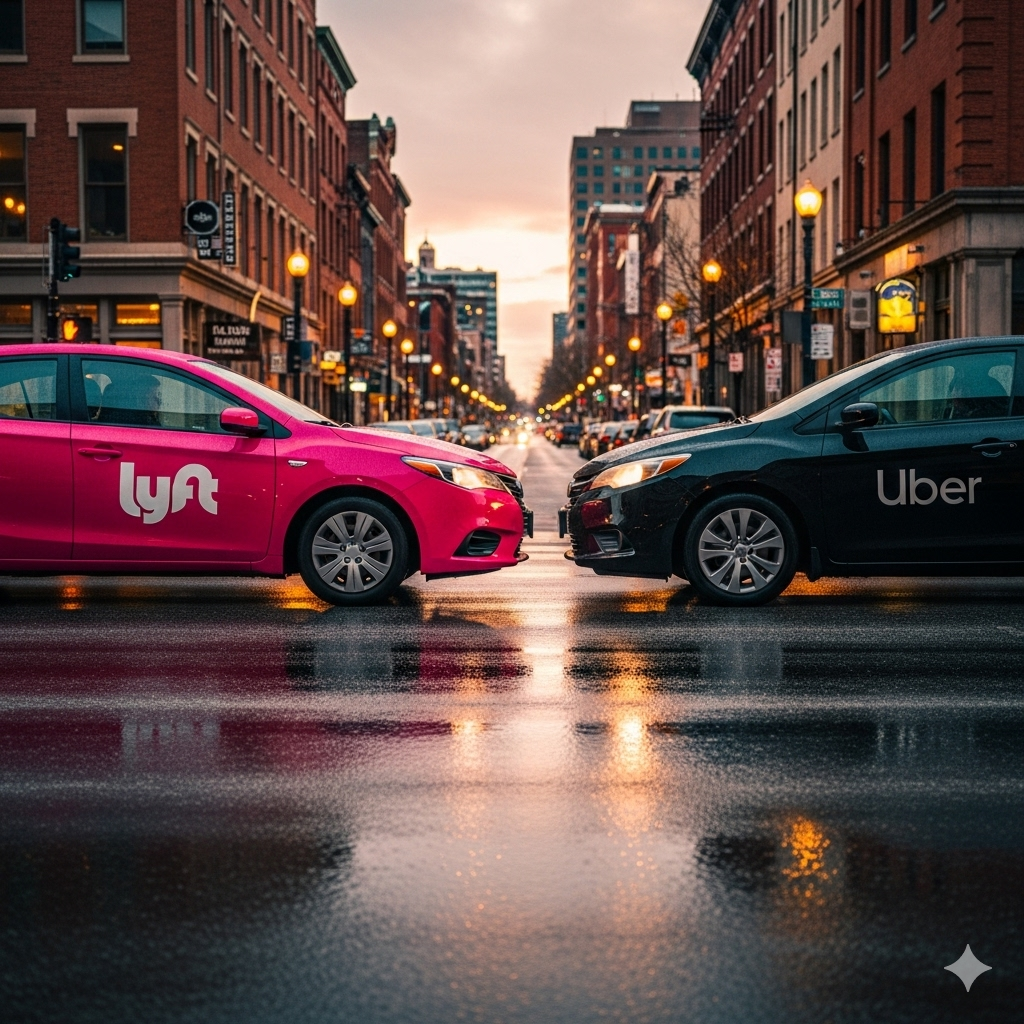Liability In Baltimore Lyft Accident Cases

Liability In Baltimore Lyft Accident Cases: When you find yourself involved in a Lyft accident, many questions and concerns immediately arise. Among the most important of these concerns is the issue of liability. Determining who is at fault in a Lyft accident can be a complicated process, with many factors to consider.
There are three main parties involved in a Lyft accident: the Lyft driver, the other driver (if applicable), and Lyft itself. Each of these parties may bear some responsibility for the accident, and the extent of their liability will depend on the specific circumstances of the case.
First, let’s look at the Lyft driver. Just like any other driver on the road, Lyft drivers are required to follow all traffic laws and exercise a reasonable standard of care while operating their vehicle. If the Lyft driver was negligent in some way, such as by speeding, running a red light, or driving under the influence, they can be held liable for the accident.
Liability In Baltimore Lyft Accident Cases: Next, we must consider the other driver (if there was one involved in the accident). If the other driver was at fault, then they can be held responsible for the accident. This could include situations where the other driver was speeding, distracted, or otherwise not following the rules of the road.
Finally, we must look at Lyft itself. Lyft always contends they may never be held responsible for an accident. This would never happen, in their view, even if the Lyft driver was not properly vetted or if the vehicle they were driving was not adequately maintained. In these situations, Lyft contends they may just never be responsible for any accident.
Lyft will invariably point out that they meet all local and state regulations for rideshare operations. By following statutory insurance and licensing rules, they argue they have satisfied their obligations and shouldn’t face additional liability.
Lyft will classify their drivers as independent contractors, not employees. This allows them to argue that traditional employer liability rules (respondeat superior) do not apply, since they claim they don’t “control” drivers the way an employer controls employees.
A2: Lyft can argue that if a driver is off the app, or not actively picking up or carrying a passenger, then the driver alone is responsible. They routinely insist that their liability only applies during limited “active duty” periods
A3:Lyft argues they shouldn’t be liable for driver misconduct, such as driving impaired, carrying unauthorized passengers, or otherwise violating platform policies. They claim such acts fall outside their control.
A4: They call themselves a technology platform rather than a transportation provider. By framing themselves as simply an “app marketplace” connecting riders and drivers, they try to distance themselves from accidents that occur on the road.
Baltimore Personal Injury Law 101: We love this argument. It has proven suceessful for Uber and Lyft.
Lyft structures their insurance in tiers. If the app is off, the driver’s personal insurance should apply. If the app is on but no passenger is assigned, limited coverage may apply. If the app is on with a passenger, commercial coverage applies, or should.
Baltimore Personal Injury Law 101: Lyft argues their liability depends on which phase the driver was in at the time of the crash.
Lyft may leverage arbitration clauses in their terms of service, arguing that disputes should be handled outside of court. This tactic can limit a claimant’s ability to pursue direct liability claims. If you were hurt in an accident with a Lyft driver, and they are seeking to compel arbitration, call me immediately- 410- 591 2835.
Lyft drivers have been considered independent contractors, not employees of Lyft. This means that Lyft may try to avoid liability by arguing that the driver, not the company, was responsible for the accident. This can make Lyft accident cases more complex and is one reason why it is essential to have a skilled attorney on your side.
A Lyft accident lawyer can help you navigate the complexities of liability in these cases. They will work to gather evidence, interview witnesses, and build a strong case to ensure you receive the compensation you deserve.
One thing to keep in mind is that Maryland is an at-fault state, meaning that the person who caused the accident is responsible for paying for the damages. This can include medical expenses, lost wages, and other costs associated with the accident. Additionally, Maryland follows a contributory negligence rule, which means that if you were even partially at fault for the accident, you might be barred from recovering any compensation.
This is why it is crucial to have a skilled Baltimore, MD Lyft accident lawyer on your side. They will work to prove the other party’s liability and ensure that you are not unfairly blamed for the accident.
Liability in Lyft accident cases can be a complex and nuanced issue. There are many factors to consider, and the outcome will depend on the specific circumstances of the case. If you have been involved in a Lyft accident, it is in your best interest to consult with a knowledgeable attorney who can guide you through the process and ensure that your rights are protected.
I’m Attorney Eric T. Kirk. I understand the challenges and complexities involved in Lyft accident cases. We have the experience and expertise necessary to navigate these cases and ensure that our clients receive the compensation they deserve. We will work tirelessly on your behalf, leaving no stone unturned in our pursuit of justice. Contact us today to learn how we can help you with your case against Lyft.



